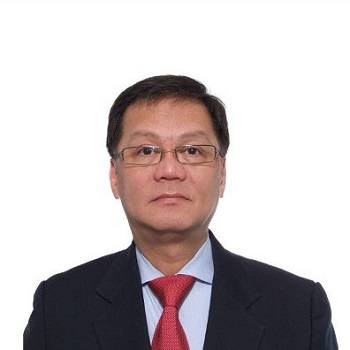A View on Hospitality AV From the Mandarin Oriental Hotel Group

Bong Valdez oversees technology for the Mandarin Oriental Hotel Group in Asia, including operations and development for the group’s growing portfolio of 13 operating hotels and six construction projects.
Together with colleagues at the corporate office, the hotel properties, and technology partners, Valdez looks after core hotel applications, IT infrastructure, telephony and messaging, in-room entertainment, budgets, project technical briefs, and technology standards.
Valdez is a long-time participant in InfoComm programs. In 2016, he joined other technology experts from Crestron Asia and the University of Hong Kong on an InfoComm advisory group in Hong Kong. Here he shares his view of the development of hospitality AV and the advisory group’s mission.
Q: You have been a champion for technology development at the Mandarin Oriental Group for 16 years. What are the top priorities in your role?
Valdez: My focus is on the successful design, rollout, operations and ongoing support of technology, and all at the same time, ensuring that we are innovating along the way instead of taking a cookie-cutter approach in our projects.
Q: With your broad scope of responsibilities, what are the biggest challenges from an AV standpoint?
Valdez: The first AV challenge is ownership: Is it under IT, engineering or operations? It also remains a concern that AV is often seen as a standalone discipline rather than as an integrated part of the IT ecosystem. I feel strongly that AV networks need to move toward the converged IT infrastructure.
In addition, there is ongoing need to advance training and certification among the design and operations teams. For example, in the hospitality sector, we have seen a clear shift from analogue to digital, and technicians need to continuously develop their skillsets to deliver the best results consistently.
Q: How have you seen the role of AV evolve in the organization over the years?
Valdez: Everyone is becoming more aware of the value of getting AV right, and how poor design and deployment affect guest experience. When it comes to AV, some innovation can be a low-hanging fruit, and there are a lot of opportunities to make a difference. This is especially true in Asia’s MICE sectors (Meetings, Incentives, Conference, Exhibitions).
Q: You have participated in InfoComm events for years. What are the most valuable InfoComm programs from your standpoint?
Valdez: Definitely the education series, as well as the vendor showcase and interaction at InfoComm shows.
Q: How would you describe the InfoComm advisory group and why do you think it’s a meaningful effort to be a part of?
Valdez: The InfoComm advisory group gathers representatives of key market segments to further our shared understanding of the industry’s needs. It is a forum for different players to be heard on how InfoComm can better support them and advance the industry.
Q: What types of initiatives would benefit the AV industry in Asia?
Valdez: I’d like to see more resources for developing more certified AV installers, especially in China. We’d also benefit from the latest insights on the convergence of IT and AV.





